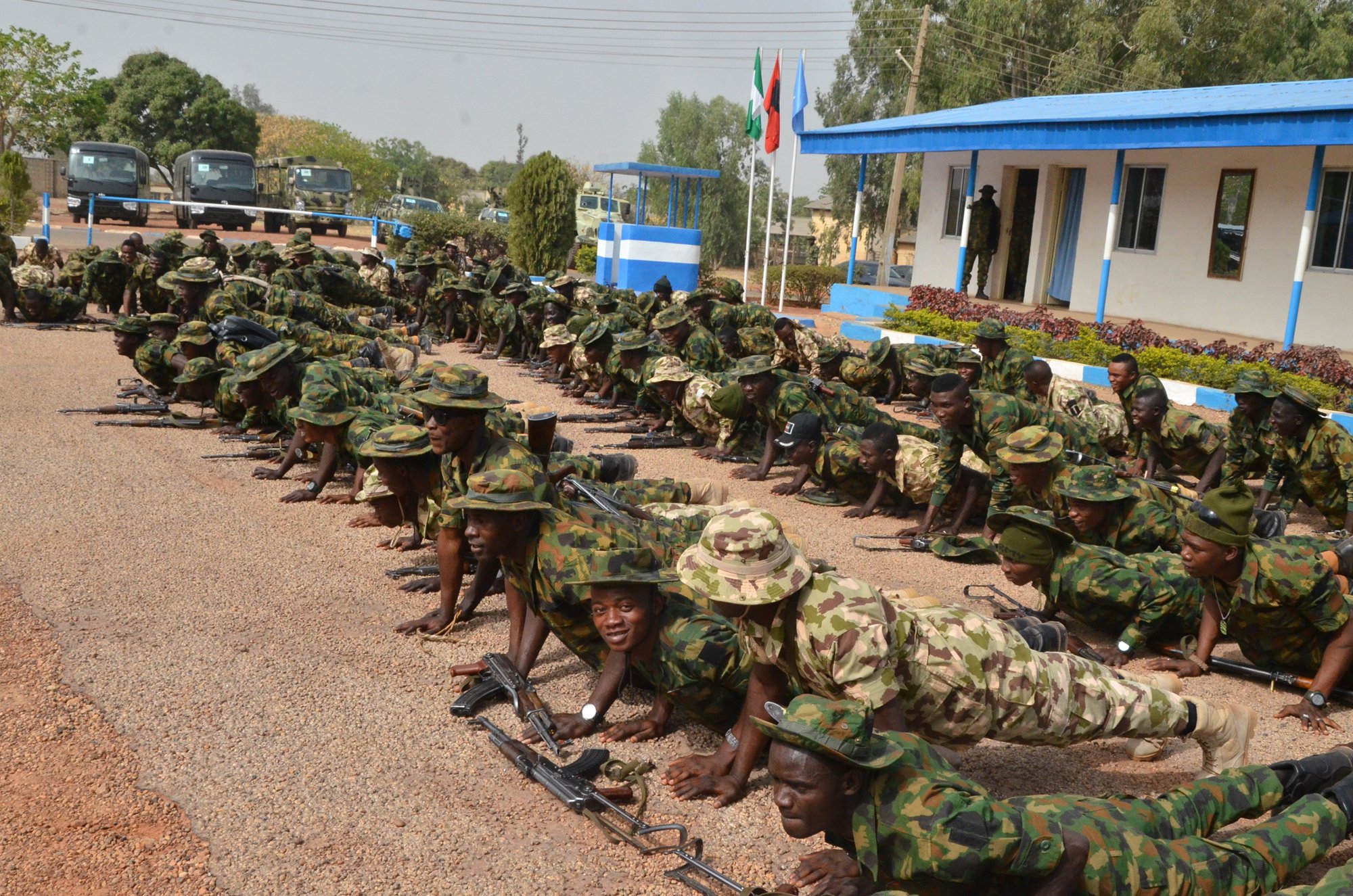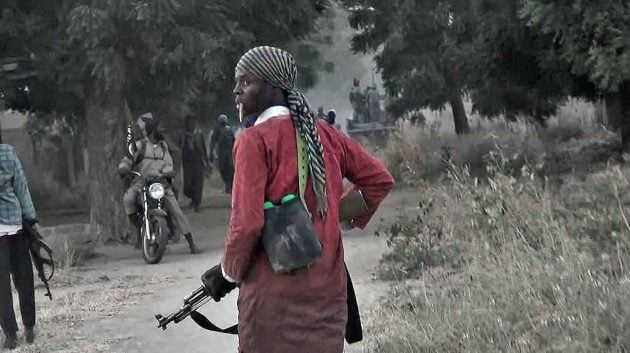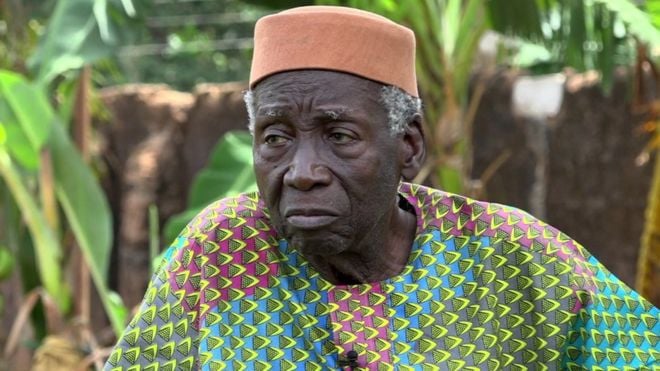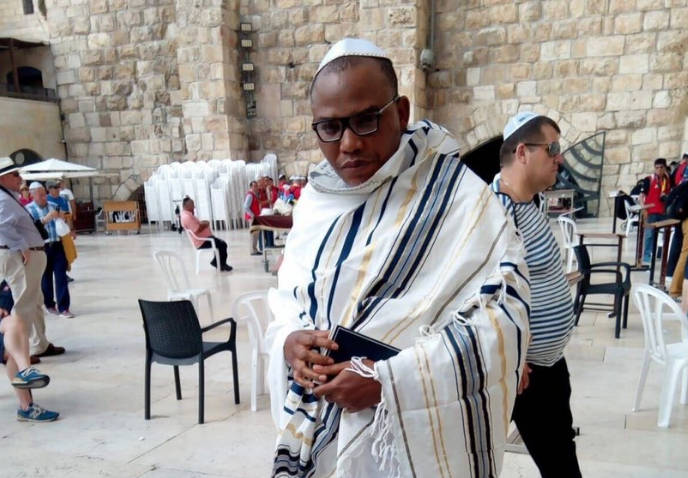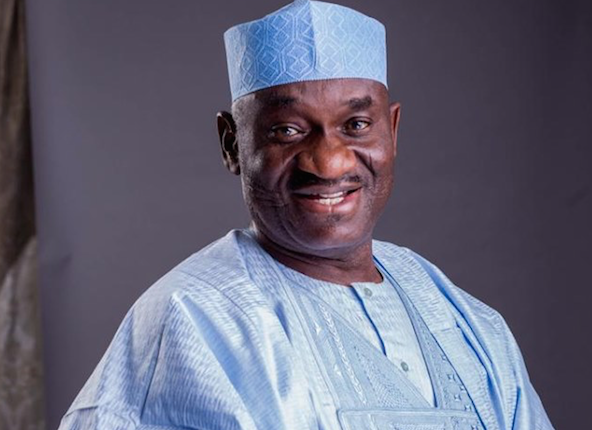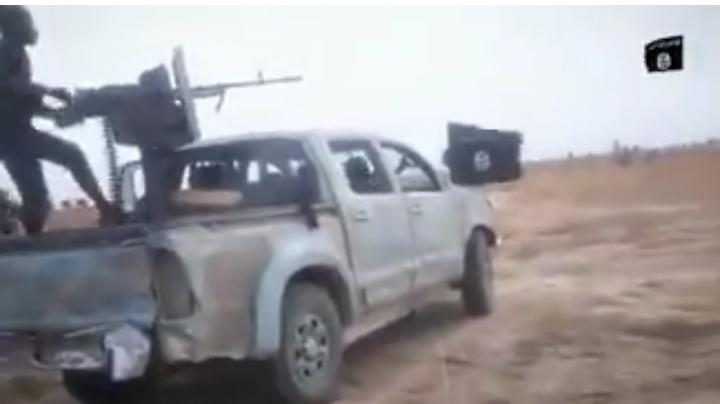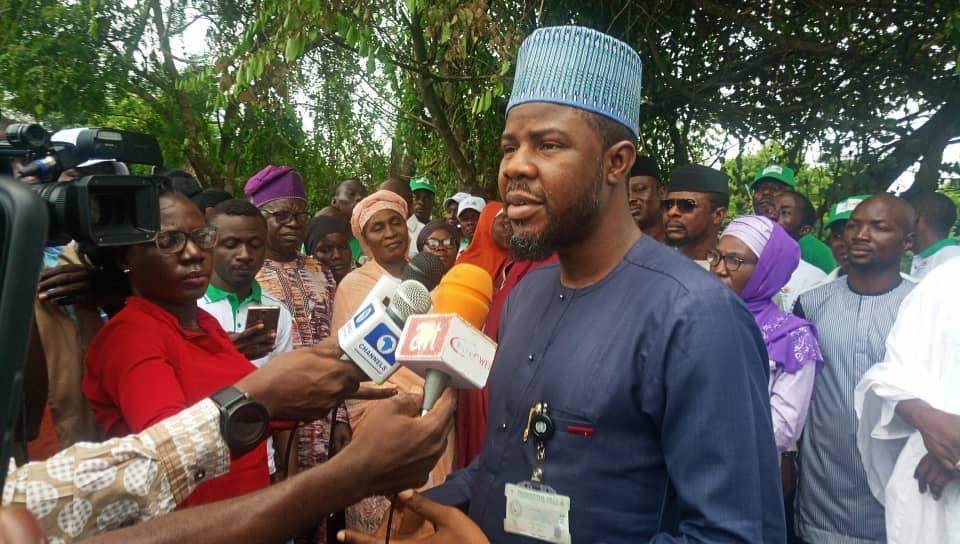Pic.18.. 1 Div. Nigeria Army and other Security Personnel, during a show of force organized by 1Div., ahead 2019 rescheduled presidential and National Assembly elections in Kaduna on Friday (23/2/19).
01613/22/2/19 Ibrahim Bashir/JAU/NAN
BY ALI BAKO
“People sleep peaceably in their beds at night only because rough men stand ready to do violence on their behalf.”—George Orwell, famed English novelist and essayist, journalist and critic.
I devoted time to understand why Armed Forces Rememberance Days or Fallen Heroes Days are observed with frenzy globally. And it is done with much prayerful devotion or solemnity by individuals and Governments alike.
And after a painstaking research, I came to the inevitable conclusion that the Military anywhere in the world is the backbone of the survival, peaceful existence and security of any nation. Without the Military serving as counter-force, mightier nations would have been freely annexing “weaker” countries so mindlessly. Some pundits argue that outside the economy, the true might of any country resides with it’s military.
Advertisement
An American, Claudia Pemberton fondly encapsulates the messianc relevance of his country’s soldiers in this epigram; “America without her soldiers would be like God without His angels.”
Historically, wars, conflicts, agressions and violence are innate and inseparable from human communities, whether as large as countries. Wherever people congregate in a defined geographical expression, it’s predictable that unrestrained tampers even within groups, among communities and nations could be violently expressed anytime.
It’s difficult to point at any nation of the world today, which has not experienced a civil strife or external invasion in her history. The task to repel the aggressors is exclusively Military.
Advertisement
Some of these conflicts are spurred to settle age-long grievances, where dialogue consistently fails; pull the strings of self-determination; racial supremacy or for some idiotic reasons such as Boko Haram’s violent campaigns against Western-styled education and leadership in Nigeria.
But in all instances, it is the military that bears the final brunt for the weired actions of incensed men with the daunting task of restoring peace and security, what majority of humanity needs desperately at all times. So, the military is a priced asset anywhere.
Elmer Davis espouses this idea by echoing that “This nation will remain the land of the free only so long as it is the home of the brave.”
It the reason nations of the world invest billions in fortifying it’s military base from personnel general and specialised trainings to latest modern armaments. A nation’s ownership of a certified, professional and patriotic Army is a signpost of it’s proud existential heritage.
Advertisement
And I was scared in the years between 2011 to 2015, when Nigerian troops battling Boko Haram in the Northeast shirked before insurgents in the frontline; frequently celebrated mutiny in the battlefields, instead of matching them with superior valour; while others even resisted redeployment.
Tales of some Nigerian soldiers’ connivance with the enemies to sabotage the anti-terrorism war resonated trenchantly and assailed the ears to my utmost amazement.
It informed me with lucid clarity that there was a problem with the Nigerian Army or soldiers of my beloved country. Such manifestations portrayed unpretentiously that Nigerian Army was peopled by unprofessional, unpatriotic, disloyal and disgruntled soldiers. No nation could have been proud of such an Army in any guise.
But behold! In July 2015, the good Lord sent a rescuer and reformer to the Nigerian Army. President Muhammadu Buhari appointed a professionally cracked soldier, an experienced warmonger, an astute Military administrator and epitome of excellence, Lt. Gen. TY Buratai as Nigeria’s Chief of Army Staff (COAS). He was also crowned as the ombudsman of counter-insurgency operations in the country.
Advertisement
I really felt the burden imposed on Gen. Buratai in the service of his fatherland. Unknown to me, the Army General was thrown into a familiar turf and terrain, as he would later exceedingly disprove my doubts about his military persona.
The COAS mounted his leadership seat with two agenda. First, it was clear to him, the inevitability of regaining the pride of the Nigerian Army by reforming and repositioning it into a professional, patriotic, responsive and responsible Army for the performance of it’s assigned constitutional roles.
Advertisement
Secondly, Gen. Buratai knew that after the in-house cleansing of the Army, the mandate of winning Boko Haram insurgency in Nigeria was an assignment which could not be procrastinated a day longer. And it was possible with a professional, patriotic and trustworthy soldiers as his trustees on this special national service.
Like the conviction of Rwandan President Paul Kagame who proclaimed that; “We make progress not to be credited for it. We do not make progress for ourselves;” Gen. Buratai launched enduring reforms and innovations in the Nigerian Army as first agenda.
Advertisement
And throughout his tour of Army formations, Gen. Buratai had one central message he transmitted to all Army Commanders at lower rungs and personnel wherever he stepped his foot. He reminded them that he is aware of their subsisting problems such as neglect of welfare, poor equipment base and the urgent need for terrorism combat refresher trainings. It excited soldiers tremendously because some soldiers had already felt the impact of his nascent leadership even before his visit to their formations.
Gen. Buratai assured Army personnel of his leadership as absolutely submissive to their professional yearnings and Military discipline; but however, very intolerant of cretins in the system.
Advertisement
So, he departed every Army Formation with the words of American diplomatic guru and war veteran, Gen. Collin Powell thus;
“The day the soldiers stop bringing you their problems is the day you stopped leading them. They have either lost confidence that you can help them or concluded that you do not care. Either case is a failure of leadership.”
Thereafter, Gen. Buratai and troops moved to the war theatre. And the tide and the gory narratives changed in the counter-insurgency war in the Northeast.
Nigerian troops in the frontline experienced for the first time, their boss, now Gen. Buratai laced his boots and hopped into the jungle, forests, and caves with them to confront Boko Haram terrorists in Northeast.
Troops were further impressed that at critical moments of battle with insurgents, when strategies seem exhausted, they turned and saw their boss, Gen. Buratai barking strategic directives in the heat of battle, with a gun clinched within his fists. It was a great morale booster to troops.
And in each of such encounters and numerous others, Nigerian troops coasted to victory against insurgents. I know this was the foundation of what Nigerians today, truthfully celebrate as decimation and defeat of terrorism.
I wept for my dear country Nigeria, in 2016, the day, I watched the video footage of Gen. Buratai and Nigerian troops, ferociously battle out insurgents in Gwoza, the headquarters of their “Islamic caliphate,” illegally declared and occupied within Nigerian sovereignty for years.
Shortly after the fierce exchange of gunfire, with terrorists and scores sent to their waterloo; while a few others escaped, the same Nigerian Army squad came back to Gwoza, now, the cleared center of torture and extra-judicial executions of Nigerians by terrorists.
So, I said to myself, this feat was even possible with Nigerian Army, yet, we were allowed to go through these years of traumatic experiences of agonies, killings and displacements?
I still vividly recollect, what my COAS staff told natives of Gwoza, who milled around, like bees on honey, when they shortly after spotted Buratai and troops.
“By the Grace of Almighy Allah, we worship and serve in truth; nobody will seize your land, occupy it, take you into slavery on the land your forebears bequeathed to you;” Gen. Buratai addressed jubilant natives, as they hog soldiers in ecstasy.
To this moment, insurgents have neither been able to recapture Gwoza, despite their desperate struggles nor any of the other 17 LGAs Buratai reclaimed from terrorists occupation in the Northeast.
Nigerians experienced this new and refreshing reality because in Gen. Buratai’s reformation preachments, he reminded troops of the power in the words of George S. Patton (Jr) that;
” …It is a proud privilege to be a soldier – a good soldier … (with) discipline, self-respect, pride in his unit and his country, a high sense of duty and obligation to comrades and to his superiors, and a self confidence born of demonstrated ability.”
And it has also not escaped my attention that Nigerian troops have not severed themselves from these lofty teachings of patroitism and endearing leadership of Gen. Buratai. It does not foreclose the chances of the few unpatriotic elements and sabs in the system, who are applying every satanic measure to discolor the counter-insurgency operations and insurrections in Nigeria to reverse the gains on the counter-terrorism campaigns.
But to the majority of our patriotic solders and troops in the frontline, I will leave them with the words of
Adlai Stevenson II, to ponder;
“Patriotism is not short, frenzied outbursts of emotions, but the tranquil and steady dedication of a lifetime.” And definitely, there is reward for everything, my cherished soldiers.
Thumps up, Gen. Buratai and our gallant soldiers for efficiently serving as the melting point of Nigerian Armed Forces in the campaign against terrorism. Let not your spirit wane, even for a second, until the final blast of the whistle of victory for the total freedom of our country over insurgency!
Bako, a retired police officer wrote from Idah, Kogi state
